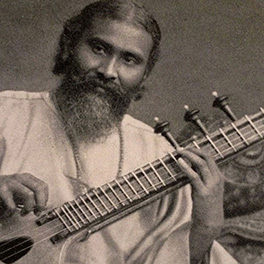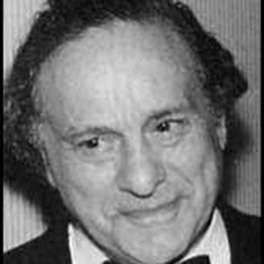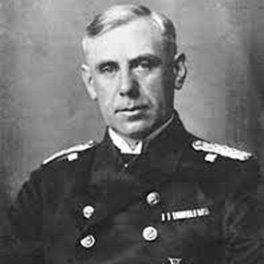CODENAME: MADELEINE
The riddle
It is so close you cannot see it.
It is so profound you cannot fathom it.
It is so simple you cannot believe it.
It is so good you cannot accept it.
What is it?
The riddle
It is so close you cannot see it.
It is so profound you cannot fathom it.
It is so simple you cannot believe it.
It is so good you cannot accept it.
What is it?

Opening in Moscow on the eve of the Great War, it follows the journey of a Mystic’s Daughter that will change her life. And change history.
As war looms again, the Constellations will force her to make an impossible choice. To remain at her harp on the Path of Love or to join the top-secret Special Operations Executive (SOE). ‘Bābouli’ to her Sufi father, ‘MADELEINE’ to the waiting Gestapo, her mission to Occupied Paris promises to be the most hazardous of World War Two.
Inspired by real events CODENAME: MADELEINE teems with tigers, zeppelins, elephants, U-boats, angels, assassins, chessmen, cyanide, beetles, butterflies and Rumi. Add to the fray a barrister-spy, a cryptographer-poet, a Bugatti racer, a master forger, a pugnacious Bishop, an armed historian and a Man with an Iron Heart.
Revolving between Paris, London, Prague, India and Latin America, CODENAME: MADELEINE is a kaleidoscope of love, war, music, betrayal, poetry and resistance.
The narrator of CODENAME: MADELEINE for the Audiobook is the award-winning actor and voice artist, Olivia Williams. Olivia trained at The Bristol Old Vic before joining the Royal Shakespeare Company. She has gone on to become a celebrated film, television and stage actor (Rushmore, The Sixth Sense, Peter Pan, X-Men, An Education, The Ghost Writer, Anna Karenina, Man Up, Victoria and Abdul, Counterpart, The Crown). Olivia read English at Cambridge and is a former Booker Prize judge.

Giles Foden, author of The Last King of Scotland and Turbulence
Alexandre Montagu, author of The Riddle of the Sphinx
Stephen Gibbs, The Times Latin America Correspondent
Sam Angus, author of Soldier Dog
Judge Robert Rinder, broadcaster and author of the widely anticipated, The Judge
The Secret Barrister
Surjit Reads and Recommends, celebrated Twitter book blog
Spolier alert! We recommend that you only open the part below if you have read the book.

January 1914 – September 1944
‘Codename Madeleine’: was the daughter of a Sufi mystic, a harpist and author of Twenty Jātaka Tales, based on the previous lives of the Buddha. A fluent French speaker, she was recruited into the Special Operations Executive (SOE) in 1942. She was sent to Occupied Paris in 1943 as a wireless operator under the codename MADELEINE at a time when agents in the field had a life expectancy of four weeks.

July 1882 – February 1927
Inayat Khan: Sufi mystic, musician, musicologist, teacher, writer, poet, philosopher, traveller and descendant of the royal house of Tipu Sultan of Mysore. Inayat Khan was considered one of the finest ever players of the sursingar, a swan-necked Indian lute..

March 1910 – March 1945
Francis Suttill: half-English, half-French barrister of Lincoln’s Inn. Recruited into SOE in 1942, Suttill was dropped into Occupied France that autumn. Under the codename PROSPER he went on to establish one of the largest and most important SOE-backed resistance networks in Paris. The network was betrayed just days before Noor Inayat Khan arrived in a city swarming with Gestapo.

September 1920 – January 2001
Leo Marks: chess prodigy from the family that owned the much-loved MARKS & CO. antiquarian bookshop at 48 Charing Cross Road. Marks was recruited into SOE as its head cryptographer. One of his duties was to arm agents with ‘poem codes’ used to encrypt messages sent in from the field. His poem ‘The Life that I Have’ (taken to Occupied France by the SOE agent Violette Szabo) became one of the most famous of WW2.

January 1887 – April 1945
Wilhelm Canaris: a naval officer of the Prussian school, Canaris’ was taken prisoner in Chile after naval battle in WW1. He escaped from Quiriquina Island and made it over the Andes into Argentina and from Buenos Aires back to Imperial German Naval Headquarters. In WW2 he became head of the Abwehr, German military intelligence. He went on to disavow Nazism and in 1944 was accused of being part of the plot to assassinate Hitler.

Juli 1886 – June 1944
Marc Bloch: a decorated veteran of WW1, Bloch became a celebrated historian at the Sorbonne and creator of the ‘Annales’ school of history. In WW2 Bloch became a prime mover in the Paris and Lyon Resistance. He continued to write his seminal work ‘What is History?’ while held in Montluc Prison after his capture in 1944.





